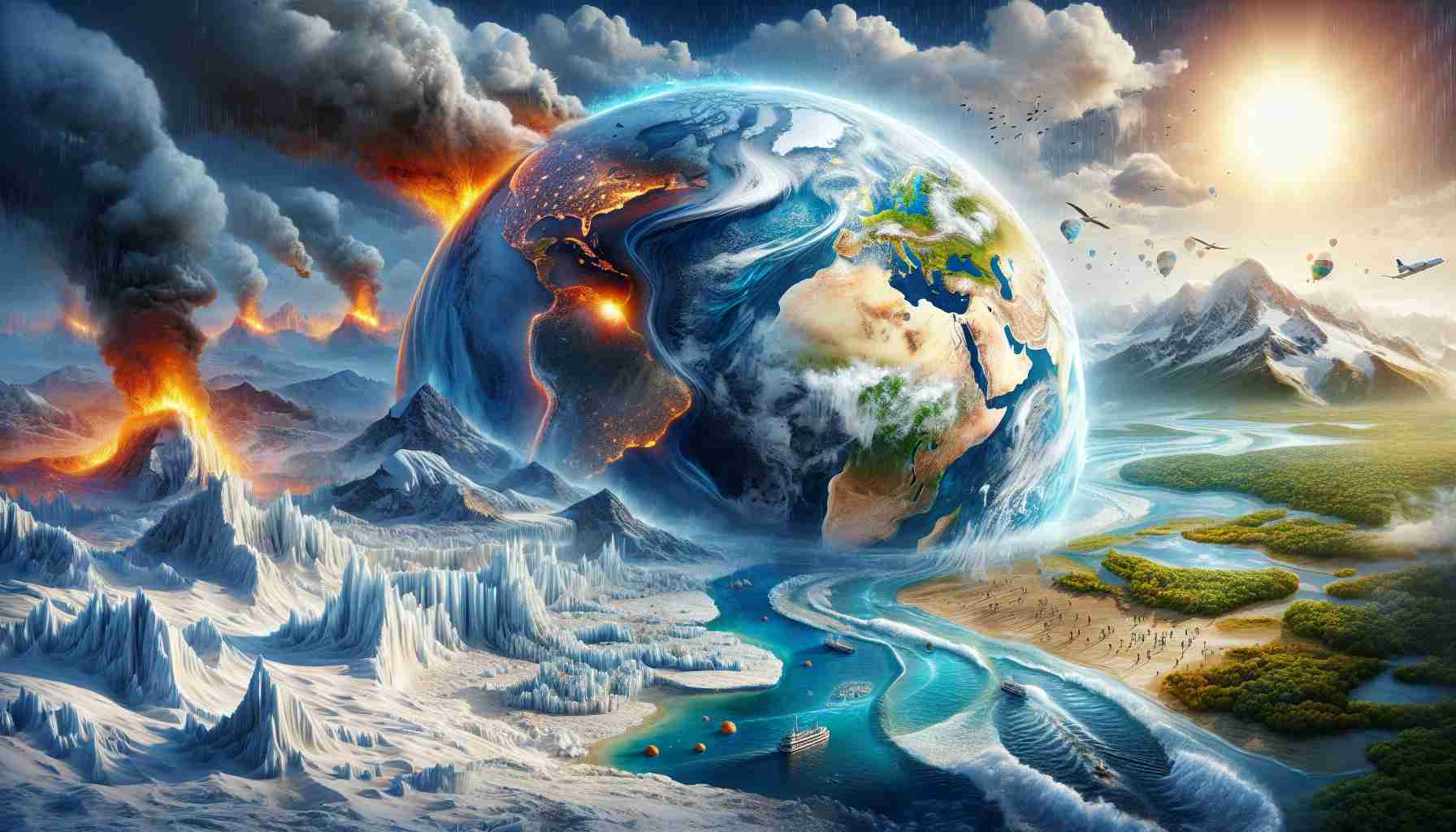A supercomputer simulation has revealed a startling prediction regarding the future of humanity:
Researchers from the University of Bristol conducted a study that explored how the world would be vastly different from today. Due to tectonic plates shifting, continents would merge to form a new supercontinent known as Pangea Ultima.
Dr. Alexander Farnsworth stated that this new supercontinent would lead to extreme conditions with temperatures reaching levels that would make the environment hostile for mammals due to the lack of food and water sources.
The study predicts that only a small percentage of the Earth would be habitable for mammals, and humans would struggle to adapt to the new extreme climate phenomena. Volcanic eruptions would increase in frequency, and sunlight would be hotter than ever before.
While this catastrophic scenario is not expected to occur for another 250 million years, researchers emphasize the importance of addressing the current climate crisis caused by human greenhouse gas emissions.
Co-author of the study, Dr. Eunice Lo, highlighted the urgency in taking action to combat the current extreme heat detrimental to human health. She stressed the need to achieve zero emissions as soon as possible to prevent a future where Earth becomes uninhabitable.
New Study Reveals Further Insights into Earth’s Climate Changes
Scientists at the Global Climate Research Institute have recently published a groundbreaking study that delves deeper into the potential future outcomes of Earth’s climate. Building upon previous research, this new study addresses additional crucial aspects that have the potential to impact the planet in unforeseen ways.
Important Questions:
1. What are the primary factors contributing to the predicted drastic climate changes?
The study analyzes not only tectonic plate movements but also the intricate interactions between ocean currents, atmospheric patterns, and ice melt dynamics. These interrelated factors play a significant role in shaping the Earth’s climate over long time scales.
2. How might the predicted climate changes affect global biodiversity?
One of the key concerns raised by the study is the potential mass extinction events that could result from the extreme climate shifts. The impact on various ecosystems and species diversity remains a critical area of investigation.
Key Challenges and Controversies:
Despite the valuable insights provided by the study, several challenges and controversies surround the predictions of future climate changes. One major point of contention is the accuracy of long-term climate models and the uncertainties associated with making precise forecasts over millions of years.
Furthermore, the potential socio-economic implications of such dramatic climate transformations remain a matter of debate. Issues related to global governance, resource distribution, and geopolitical stability under extreme environmental conditions pose significant challenges for policymakers and researchers alike.
Advantages and Disadvantages:
On the positive side, the study serves as a wake-up call for humanity to prioritize sustainable practices and mitigate the current impacts of climate change. By highlighting the long-term consequences of environmental degradation, it urges collective action to safeguard the future habitability of the planet.
However, the daunting nature of the predicted climate changes may also lead to feelings of helplessness and despair among individuals and communities. Balancing the need for urgent action with the psychological toll of confronting such massive challenges remains a delicate balance to maintain.
For more information on ongoing climate research and mitigation efforts, visit the NASA Climate Change website. Stay informed and engaged in the global conversation on preserving our planet for future generations.



